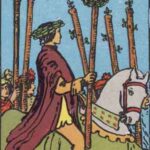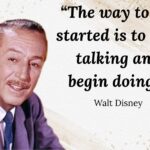“Knowing is not enough, we must apply.” – Bruce Lee
We live in a world saturated with knowledge. It’s never been easier to access information—millions of books, courses, videos, and guides are just a few taps away. You can learn how to start a business, build six-pack abs, write a novel, or master a new language from the comfort of your home.
And yet, with all this knowledge, so many of us remain stuck.
Why?
Because knowing something intellectually is not the same as doing it. And it’s certainly not the same as living it.
Bruce Lee, one of the most disciplined and insightful martial artists of the 20th century, understood this truth at its core. When he said, “Knowing is not enough, we must apply,” he wasn’t just speaking about martial arts. He was revealing a universal principle—one that applies to every area of life.
The Illusion of Progress
Let’s be honest—learning feels good. It gives us a rush of dopamine. We feel smarter, more capable, more prepared. It feels like we’re progressing.
But feeling and being are two different things.
Reading 20 books on productivity doesn’t make you productive.
Watching countless fitness videos doesn’t get you in shape.
Listening to relationship advice won’t heal a broken connection unless you apply it.
Knowledge without action is like a blueprint that never becomes a building. It’s potential energy that never gets converted into kinetic movement. It’s a car engine revving in neutral.
Too many people mistake mental accumulation for transformation. But the truth is, transformation only comes through application.
Why We Avoid Applying What We Know
If applying knowledge is so crucial, why don’t more of us do it?
Because it’s hard. It’s uncomfortable. It requires vulnerability, effort, and consistency. Action exposes us. It brings us face to face with failure, feedback, and the reality that we may not be as ready as we thought.
Here are a few common barriers:
- Fear of failure: If we act and fail, our ego takes a hit. So we stay in the safety of theory.
- Perfectionism: We think we need to know everything before starting. So we delay.
- Overwhelm: Too much information leads to paralysis. We don’t know where to begin.
- Comfort zones: Application demands change, and change is uncomfortable.
But none of these excuses change the truth: Your life only changes when your behavior does.
Applied Knowledge is Power
The famous quote, “Knowledge is power,” is only half-true. The full truth is:
Applied knowledge is power.
That’s what separates high achievers from the crowd. It’s not that they know more. It’s that they use what they know.
They take the idea, the strategy, the lesson—and put it to work. They’re willing to risk imperfection, make mistakes, and keep adjusting. In doing so, they move forward while others remain in analysis paralysis.
Think about the most successful people you admire. Chances are, they started before they felt ready. They took what they knew and applied it relentlessly. Then they learned more through action, not just study.
The Application Formula
So how do you move from knowing to doing?
Here’s a simple 3-step formula to help you bridge that gap:
- Focus on One Key Idea
Don’t try to apply everything you learn. That’s overwhelming. Pick one powerful idea and go deep. For example, if you’re reading about habits, don’t try to change five at once. Start with one. Apply it consistently for 30 days.
Ask yourself:
What’s the one thing I can apply today that will move me forward?
- Turn Insight into Action
Learning gives you insight. But insight needs to become action.
If you read about morning routines, build one.
If you learn about effective communication, practice it in your next conversation.
If you discover a better way to manage your time, test it out tomorrow.
The key is to translate insight into behavior—immediately. Don’t wait for the “right” moment. The moment is now.
- Track and Adjust
Action is messy. You’ll stumble. That’s okay.
But keep going.
Track what’s working. Adjust what isn’t. Action plus feedback equals growth. Every day, you’ll get better—not just in theory, but in reality.
This is how confidence is built—not from reading about courage, but from taking action despite the fear.
The Compound Effect of Application
Here’s the beauty of consistent application: it compounds.
The more you apply, the more you learn. Not just what to do, but how it works in the real world. Your results inform your future actions. And little by little, you gain momentum.
One small habit becomes a routine.
One sales call becomes a pipeline.
One blog post becomes a brand.
One workout becomes a lifestyle.
This is where real growth happens. Not in books. Not in classrooms. But in the arena of action.
Bruce Lee Practiced What He Preached
Bruce Lee didn’t just study martial arts. He lived it.
He applied his knowledge with ruthless intensity—testing, refining, practicing. He rejected traditional limitations, constantly evolving his approach through action. That’s what made him a master.
He knew that mastery doesn’t come from information. It comes from implementation.
That’s why his words carry such weight:
“Knowing is not enough, we must apply.”
Final Thoughts: Don’t Just Know—Become
Think of one thing you’ve been learning about lately.
Now ask yourself—Have I applied it?
If not, today’s the perfect day to start.
You don’t need to know more. You don’t need to be “ready.” You don’t need permission.
You just need to take one step forward. Then another.
Because in the end, your life won’t be defined by what you knew.
It will be defined by what you did with what you knew.
So go. Apply. Transform.
Knowledge is the spark.
Action is the flame.
And you—
You are the fire.






